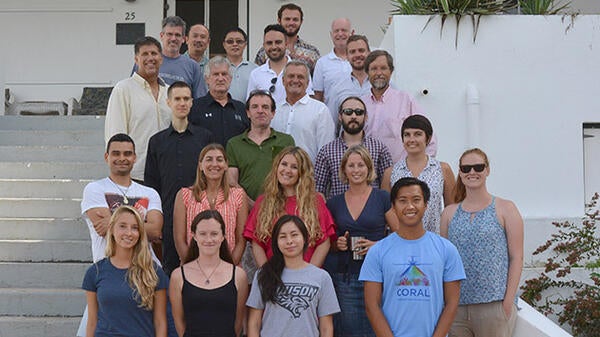Over two days in late August, a team of nearly 30 scientists, engineers, technicians and project managers met at BIOS to plan their approach for the next phase of the three-year COral Reef Airborne Laboratory (CORAL) project.
Predators and Puppeteers
September 20, 2017
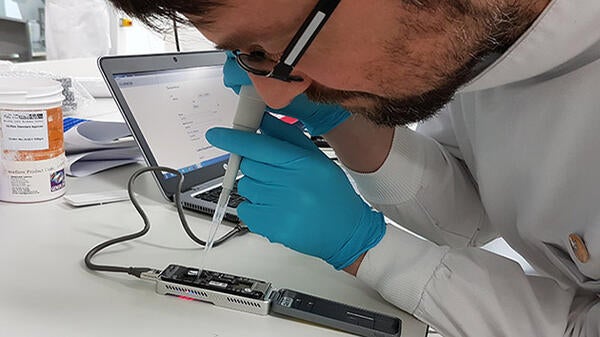
Scientists estimate there are more than a million times more viruses in the ocean than stars in the universe. While wildly abundant, their tiny sizes present a big a hurdle to fully understanding their function in ocean ecosystems. If a cell were the size of a baseball stadium, a virus would be roughly the size of a baseball, so not only are viruses difficult to see under the microscope, but even gathering enough of their genetic material to analyze can be tricky.
BIOS-SCOPE Funding Renewed
November 30, 2020
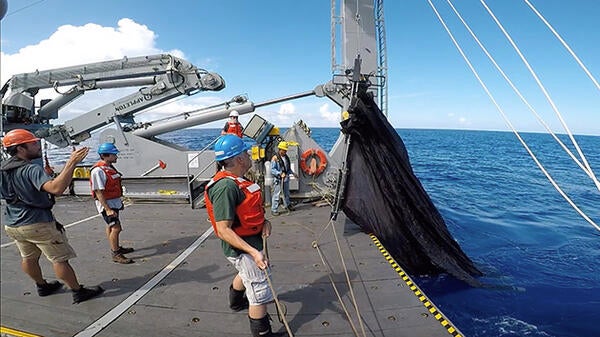
After five years, with more than 25 papers in peer-reviewed scientific journals, six dedicated research cruises, and more than 45 presentations at national and international meetings, the BIOS-SCOPE (Bermuda Institute of Ocean Sciences – Simons Collaboration on Ocean Processes and Ecology) program has received five years of additional funding from the Simons Foundation International to continue its study of the microbial oceanography of the Sargasso Sea.
‘A Fantastic Boost for My Career’
November 29, 2020
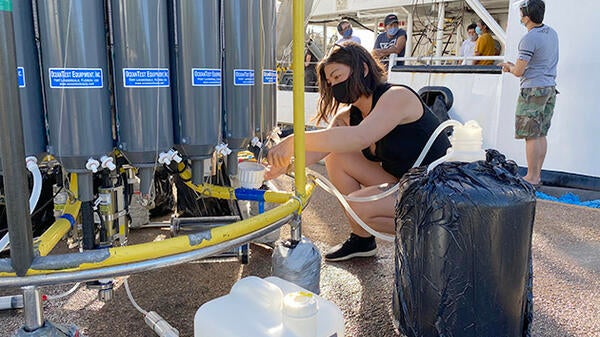
Naomi Villiot knew the path to research abroad during a global health crisis wouldn’t be easy or simple. However, “after a great deal of paperwork, navigating canceled flights, virus testing, and isolation for days upon arrival in Bermuda in September, I have been able to continue with my research,” said Villiot, who hails from a small island in France and studies at a British university.
Snorkeling, Writing Practice, and Greek Dancing
November 28, 2020
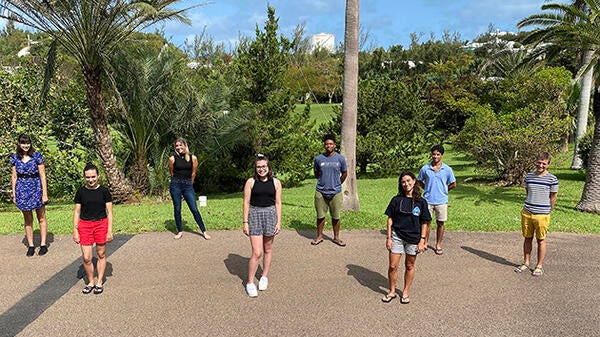
The university student interns at BIOS this fall knew there would be a lot to learn during three months of intense marine and atmospheric science instruction at BIOS. But a Greek dancing lesson was an unexpected surprise.
BIOS Bermuda Program Intern Comes Full Circle
November 25, 2020
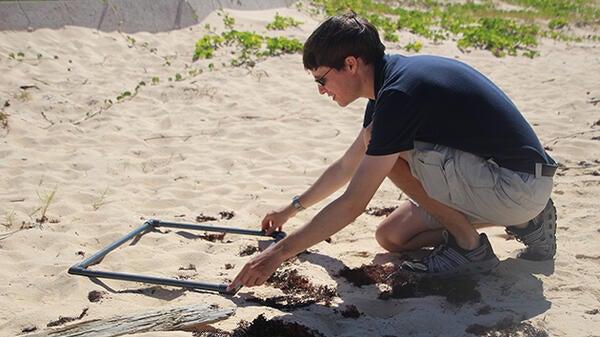
The BIOS Bermuda Program was conceived in 1976 as an effort to increase interest among young Bermudians in careers in the marine sciences. The design of the program today remains largely the same, providing a handful of promising students, ages 18 and older, with stipends to work alongside BIOS scientists each summer on research projects in marine and atmospheric sciences.
Committed to Science
November 11, 2020
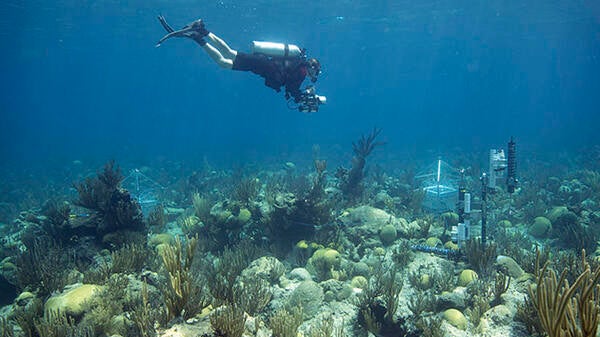
Among the many lessons we’ve learned from the COVID-19 pandemic is the value of having a highly skilled scientific workforce that is capable of leveraging its education to serve the broader community. Throughout the pandemic BIOS continued its long-standing research programs with new procedures in place and offered a record number of summer internships to on-island students, thus ensuring our continued commitment to science and science education.
New Insights Bloom from BIOS-SCOPE’s First Year of Data
August 13, 2017
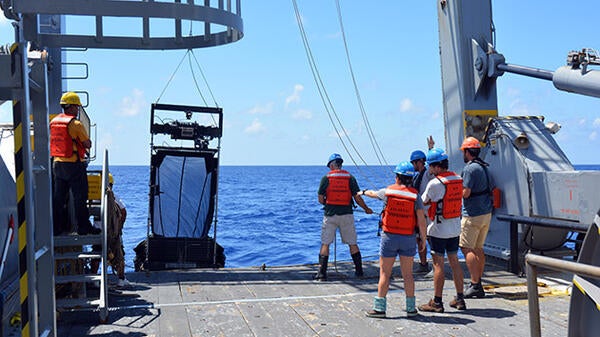
Sampling offshore Bermuda this July, the BIOS-SCOPE (Bermuda Institute of Ocean Sciences – Simons Collaboration on Ocean Processes and Ecology) program completed its first full year of study to learn how marine microbes produce, transform, and leave behind dissolved organic matter as the seasons progress, and microbial communities wax and wane.
Cultivating a Taste for Invasive Lionfish
August 13, 2017
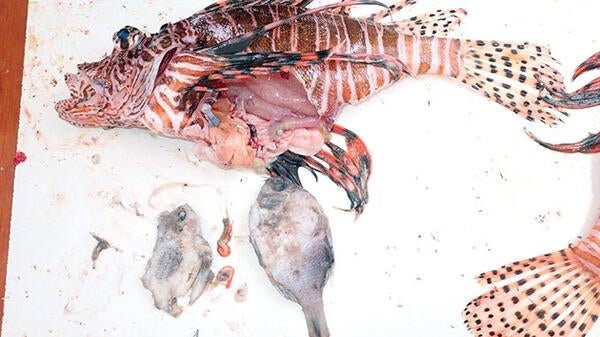
Lionfish are known for their voracious appetite: individuals can consume up to 90 percent of their body weight every day and they prey on more than 100 fish species, including many that are commercially and ecologically important.
New Education Directors for University Programs
August 13, 2017
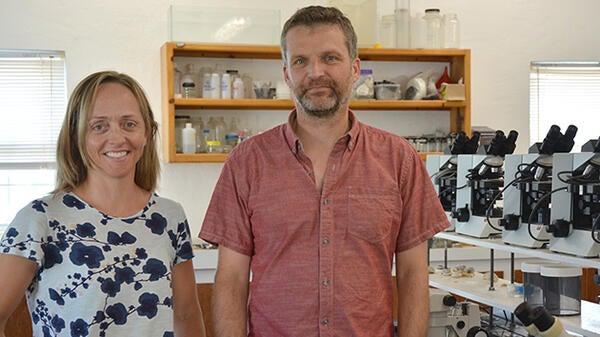
Two long-serving members of the BIOS faculty assumed new roles this month in the Education Department, while members of the Institute wished former director Penelope Barnes farewell after four years of service.
